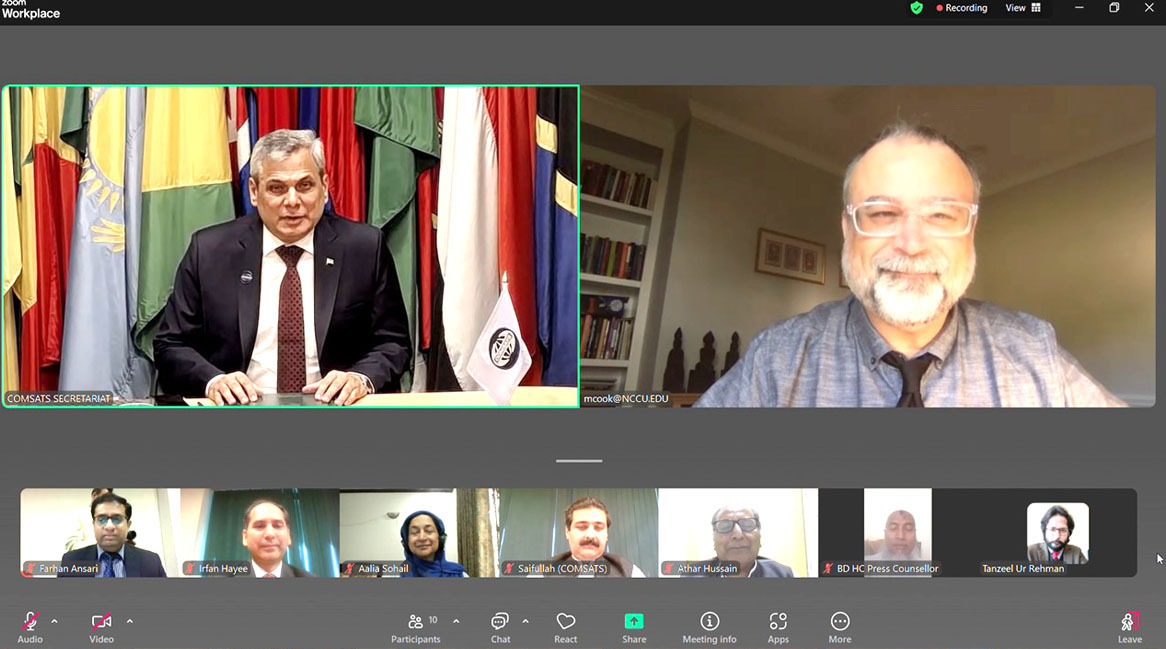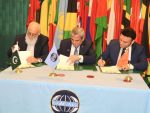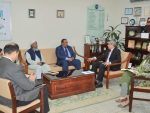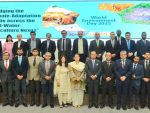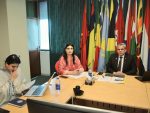Building on the ongoing collaboration between the Commission on Science and Technology for Sustainable Development in the South (COMSATS) and Living Indus, Ms. Aban Marker Kabraji visited the COMSATS Secretariat on 26th September 2024, for a meeting with Executive Director COMSATS, Ambassador Dr. Mohammad Nafees Zakaria. This partnership seeks to promote sustainability, climate action, and environmental stewardship in COMSATS host country, Pakistan.
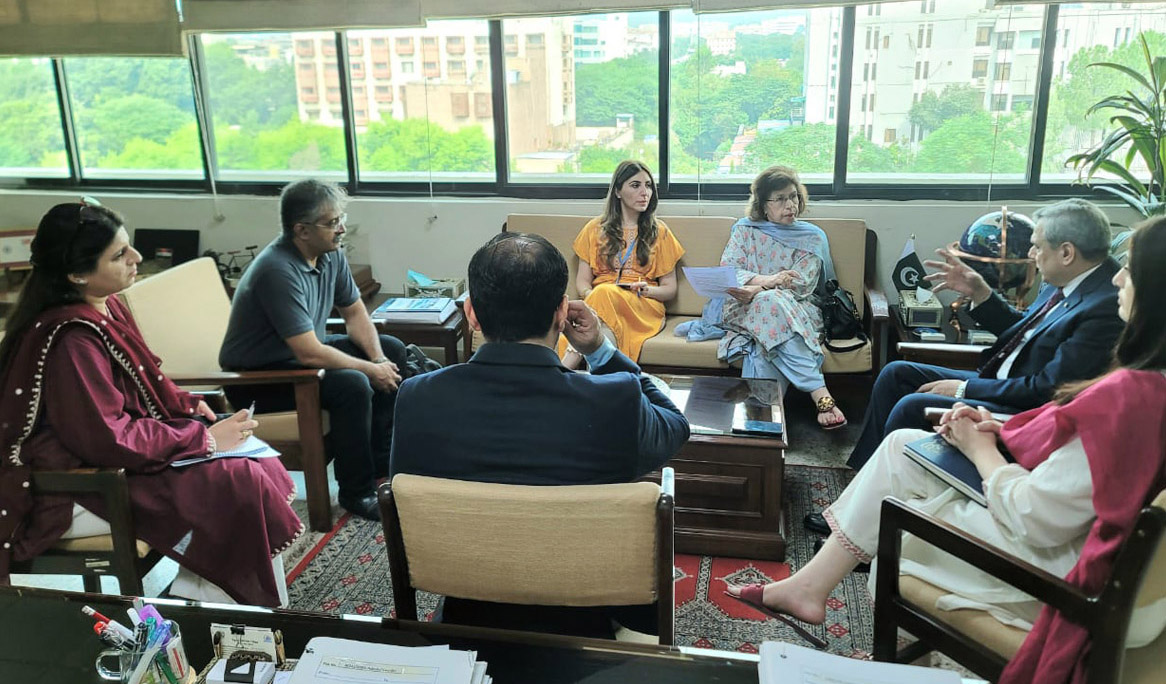
The meeting was attended by senior officials from the COMSATS Centre for Climate and Sustainability (CCCS) and Living Indus, where discussions focused on potential synergies for joint representation at the 29th Conference of Parties (COP29) to the UNFCCC, to be held in Baku, Azerbaijan. A key topic of discussion was Ms. Kabraji’s role as a resource person in COMSATS’ sideline event at the UNFCCC pavilion during COP29.
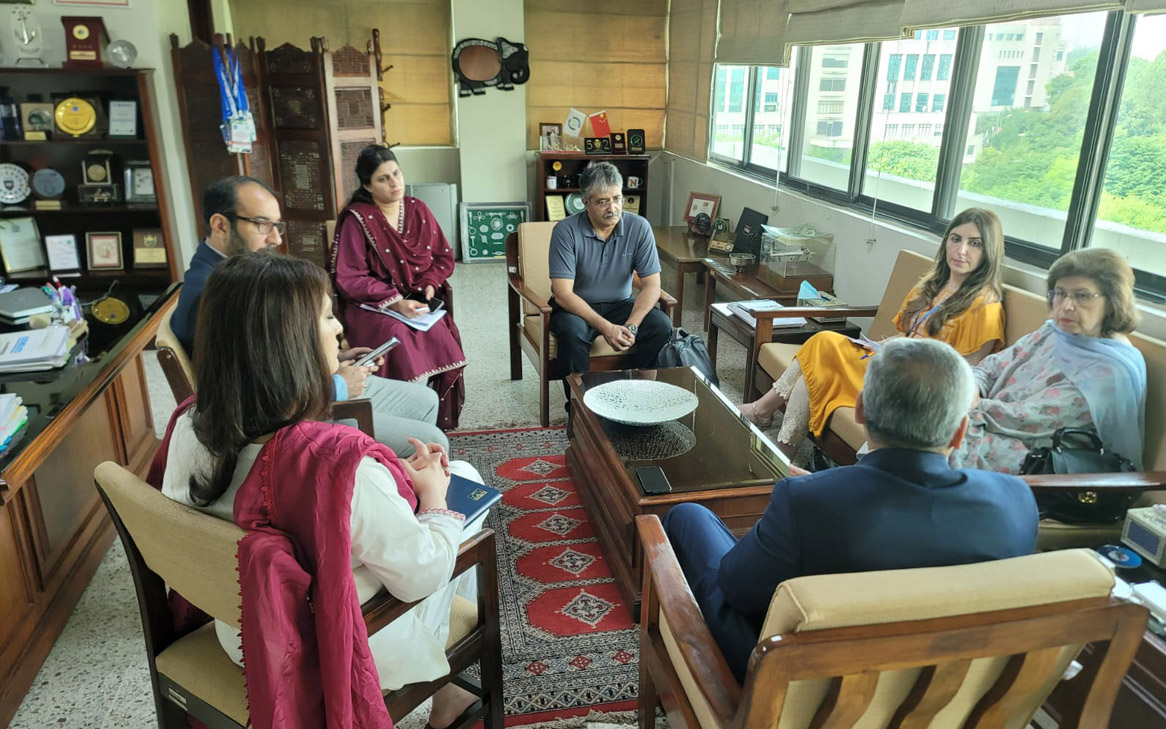
COMSATS, in collaboration with the Islamic World Educational, Scientific, and Cultural Organization (ICESCO) and the International Organization for Food Security (IOFS), has secured a panel discussion slot at COP29 titled “Fostering Water Security & Peace: Innovation, Clean Tech, & Earth Observations in the Islamic World.” During this event, Ms. Kabraji will share her insights on environmental protection and restoration efforts, focusing on water security initiatives led by Living Indus across Pakistan. She will also address the key challenges related to water security in the country. Ambassador Dr. Zakaria will contribute to the discussion by highlighting shared challenges of water security faced by COMSATS member states and the critical role of intergovernmental organizations in addressing these issues.
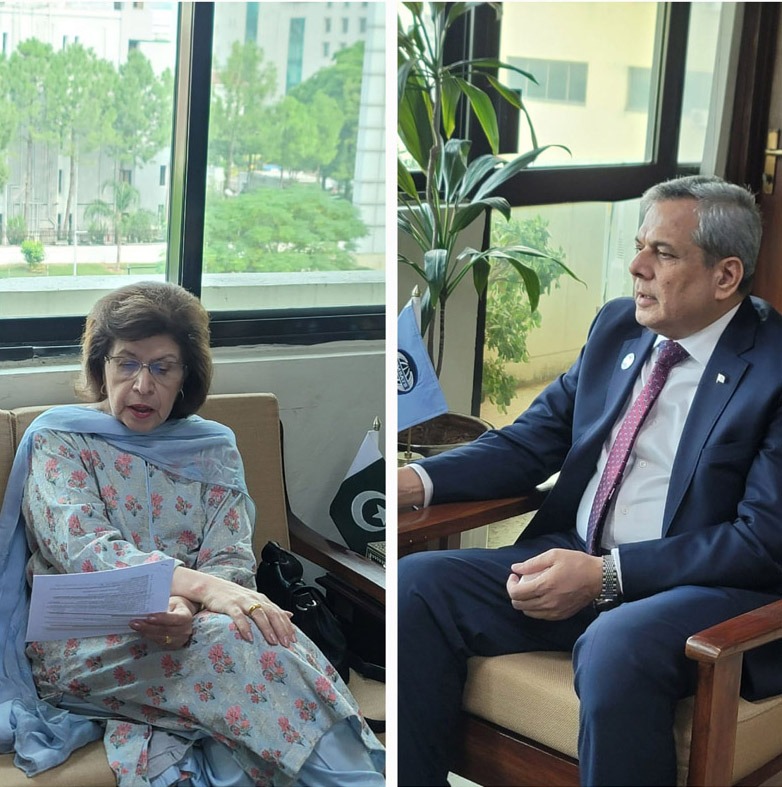
The meeting further explored other pressing areas of climate action and environmental protection, including permaculture, precision agriculture, integrated solid waste management, and electric vehicles (EVs). A particular focus was given to the issue of integrated solid waste management, with Dr. Zakaria emphasizing the importance of addressing implementation gaps. While effective solutions exist, the primary challenge lies in their execution in developing countries. Representatives from Living Indus briefed attendees on their recent initiative on plastic waste management, which involved small and medium enterprises and included a feasibility study.
Both COMSATS and Living Indus reaffirmed their commitment to organizing impactful high-level forums and dialogues, engaging the international community and experts in these areas to foster partnerships for effective solutions. The meeting concluded with a strong commitment to joint representation at COP29 in Baku, where both organizations pledged to share expertise and collaborate on future initiatives in areas of mutual interest for a sustainable future.

